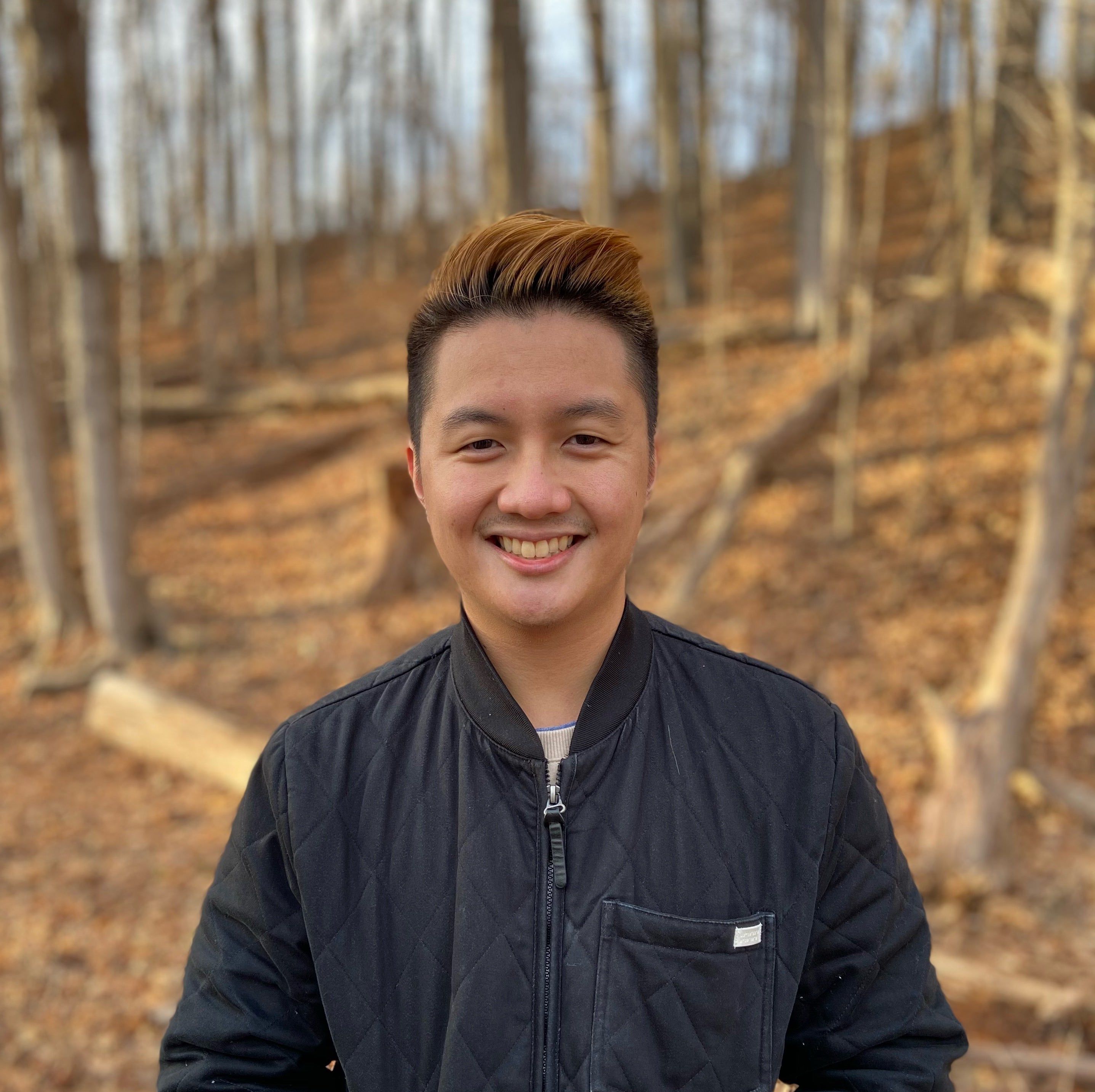Joshua Pusong, Rx2022 - Sudbury
Navigating the region
The quality of the rotations in Sudbury are A-1. You realize the community of northern Ontario has unmet healthcare needs different than what we may see in southern Ontario. This provides opportunities for pharmacists to play a major role in addressing these healthcare gaps. I also love how nature is just on the doorstep of Sudbury. What normally would be a four hour drive from the greater Toronto area (GTA) to Killarney provincial park is under an hour from town.

Housing was not difficult to come by although I recommend starting your search early. You can access student housing Facebook groups for Laurentian University and Cambrian College. There is also a retired RN from the hospital that regularly rents out his units to pharmacy students. Claude is also an excellent source to reach out should you still find difficulty with housing. I was able to find my place as my landlord was an acquaintance of my Regional Clinical Coordinator (RCC).
Navigating the town is not difficult especially if you have a vehicle. You can get from one end of town to the other within half an hour. Public transit is also available; however, services are not as frequent as some of the larger urban centres such as Toronto or Kitchener-Waterloo. I strongly recommend having a vehicle especially if you plan to visit the abundance of scenic nature offered by northern Ontario.
I will be honest in that this region was not within my top three choices. I have always heard upper year students raving about Sudbury’s excellent rotations but was always weary to move to a region that I’ve never been to before. Following the end of my rotations, I would have changed Sudbury to be in my top two for sure. I have now experienced firsthand what this region has to offer, so much that I will be continuing to work at Health Sciences North during my intern year.
Claude Charbonneau is my RCC and first preceptor. He really encouraged me to go out of my comfort zone and to approach my rotations as an independent practitioner. Outside my first rotation, we had monthly meetings both virtual and in person socials with the other students. I appreciated that he did his very best to account for my interests when deciding my placements. Claude really wants to see his students succeed and encourages them to make the most out of their placements.
Practice site descriptions
My first rotation was at the Health Science North Sudbury Outpatient Center.
I spent Mondays and Tuesdays at HAVEN, an HIV outpatient clinic servicing northern Ontario. Wednesdays to Fridays were dedicated to the Integrated Chronic Pain Program. At Haven, I performed work ups to identify and address drug therapy programs for our patients being seen on Tuesday clinics. On Tuesdays, I attended morning case reviews to discuss patient cases with more complexity. I spent the rest of the day providing support to the team such as addressing drug information requests, recommending modifications for HIV regimens, and addressing questions from HIV treatment naïve patients new to antiviral treatment. The HIV clinic is an interprofessional team consisting of a dietician, pharmacist, social worker, nurses, and an infectious disease specialist. At the Integrated Chronic Pain Program, I had appointments where I interviewed patients to obtain medical histories and identified drug therapy problems. From there, I used this information to discuss opportunities to optimize their pain medication regimens. The pain clinic is also an interprofessional team not limited to anaesthetists, nurses, case managers, a pharmacist, social worker, and recreation therapist.
My preceptor was very hands off and so I had the amazing opportunity to decide how much I wanted to get out of this rotation and dictate my role on how I would contribute to the clinics.
For my second rotation, I worked in the intensive care unit at Health Sciences North. I attended bedside rounds with intensivists, nurses, dieticians, respiratory therapists, and physiotherapists. I formulated care plans, would provide recommendations during rounds and regular follow-ups with our patients. I had the opportunity to hone my knowledge in infectious diseases and to apply the principles of antimicrobial stewardship with antibiotic use. Towards the later stages of this placement, I was following all the patients on the floor. There were so many interesting cases and diseases that I encountered for the first time. This was one of the most valuable learning experiences in my career as a future pharmacist and has made me realize how much I enjoyed critical care medicine.
For my last rotation, I worked at Lakeside Pharmacy Remedy’s Rx, an independent community pharmacy in Sudbury. I had the opportunity to do almost anything you can think of that would fall under pharmacist responsibilities not limited to independently checking prescriptions, collaborating with primary care providers to optimize patient medications, and counselling on prescriptions and over the counter (OTC) products. My preceptor allowed me to decide my role in the pharmacy which enabled me to develop my skills as an independent practitioner. I truly felt more confident in my skills as I begin transition to independent practice after I graduate.
Overall, my rotations provided me the opportunity to utilize all the steps in the pharmacotherapy patient care process from start to finish as an independent practitioner. From evaluating and assessing drug regimens, creating, and carrying out care plans, and planning follow-ups, I now feel better prepared to practice following graduation and licensure. I also gained the experience to address complex patients and to work with other healthcare professionals in multidisciplinary settings. I have learned to tailor my communication when speaking to patients and healthcare providers of different backgrounds.
Advice for future students
When they say patient care rotations is your time to develop your skills as an independent practitioner, they really do mean it. Regardless of what region you get matched too, I really believe these placements are the time to hone your skills as a pharmacist. We’ve spent countless hours in class learning the knowledge. Now is the time to develop our confidence in applying this knowledge. Always seek learning opportunities. Take initiative in asking preceptors when you want to learn more. See a patient struggling in the OTC aisle? Go ahead and aid them. Receive a drug information request from a physician? Take ownership in it and use the opportunity to independently provide a recommendation.

Don’t be afraid to step out of your comfort zone. Seek opportunities that you might not ever get to encounter once you graduate. Moving to a new region may seem daunting; however, it can provide experiences critical to your growth as a future pharmacist. Sudbury offers a wide breadth of different rotations within hospital, community, and outpatient/other primary care settings and can help you identify what type of practice you seek once you graduate. The region is also an excellent opportunity to practice your French as some of your patients will come from francophone communities.